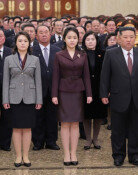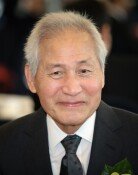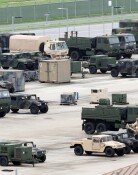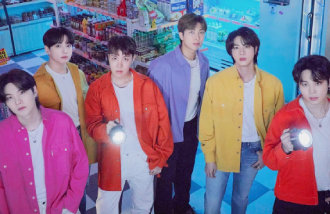Presidential office blasts special inspector, fails to fathom public sentiment
Presidential office blasts special inspector, fails to fathom public sentiment
Posted August. 20, 2016 07:12,
Updated August. 20, 2016 07:22
Special Inspector Lee Seok-soo's probe into suspected irregularities of senior presidential secretary for civil affairs Woo Byung-woo failed to dispel suspicion, and only ended up with submission of petition to seek a formal investigation to the prosecution, which is inferior to filing of an official complaint to seek investigation. It is none other than President Park Geun-hye who pledged introduction of a special inspector system and the standing independent council system as presidential candidate to counter demands by opposition candidates in the last presidential election. Inspection into allegations of corruption involving Woo was the first case that tested the special inspector system, but the system has been clearly proven to be a totally incompetent system that cannot even properly inspect, let alone rooting out corruptions.
The special inspector has no legal right to investigation such as seizure and search, and hence lacks measures to investigate if the person in question denies allegations. The special inspector has no power to seek answers and submission of materials by force. Inspection can be empowered only when the head of his supervising agency has a will and commitment. However, the president will unlikely to empower the special inspector who seeks to investigate her own aides and confidants. As Woo chose to resist, and police would not respond to the special inspector’s request to submit materials, the special inspector could hardly conduct proper investigation.
The special inspector has limited scope in terms of time and human resources, as the inspector can investigate isuspected irregularities that took place only after Woo assumed his current post. The key issue was that Woo's failure at promotion eligibility of now-dismissed chief prosecutor Jin Kyung-joon was related with Nexon's purchase of the building owned by Woo’s in-laws in Seoul’s Gangnam district. Jin was sacked for taking bribes stocks from Nexon. He had sold his shares of Nexon for 13 billion won (11.5 million US dollars) in profit last year.
Woo was not subjected to inspection over this suspicion given that he was a secretary at the civil affairs office, rather than senior presidential secretary itself, in February last year. Special Inspector Lee only addressed special favor allegedly given to his son's special treatment in his mandatory military service, and misappropriation of fund from his family-owned company, which was not even able to thoroughly investigate the suspicions.
The rule that a special inspector should not publicize or leak information regarding an ongoing probe is overly strict as well. The public should have the right to know progress of inspection if it is investigating into corruption involving senior presidential aides above the senior presidential secretary level.
It has become clear that a "paper tiger-like" special inspector can hardly root out corruptions involving a president’s aides and his or her relatives. The main opposition Minjoo Party and the People’s Party have long been demanding the introduction of an investigation office for corruptions involving senior officials, which can investigate them just like public prosecutors. Now that the special inspector system has proven to be a failure, the government should abolish the special inspector system, and step up discussions to introduce the investigation office for corruptions involving senior officials.
송평인기자 pisong@donga.com





![전기매트 틀고 자면 몸에 전자파 쌓인다?” 직접 측정해보니 [알쓸톡]](https://dimg.donga.com/c/138/175/90/1/wps/NEWS/IMAGE/2026/01/02/133079758.3.jpg)

